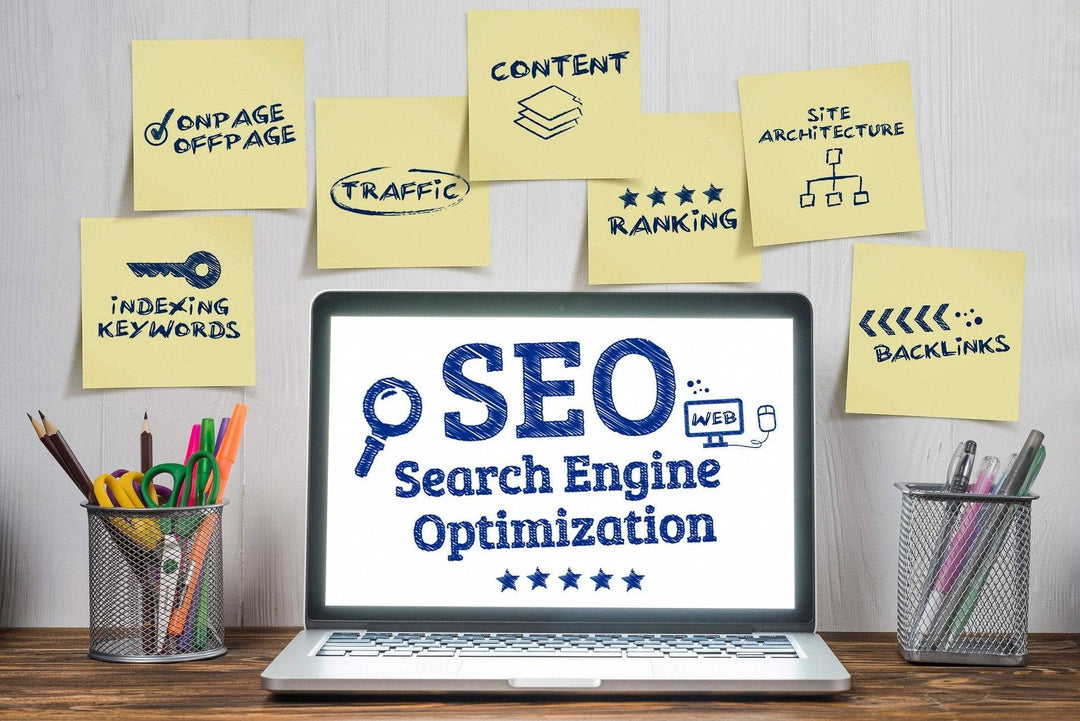eCommerce is gaining momentum. Localization features and advanced level selling options make eCommerce a goldmine for retailers. From boosting local presence to global exposure, eCommerce gives small and large businesses an equal platform.
Are you planning to kick start an eCommerce website in Raleigh, North Carolina but confused about choosing the right platform and digital marketing agency? Well, building a beautiful, full-fledged eCommerce website requires expert assistance.

Why is eCommerce Website Crucial for Local Businesses?
If you own a local brick-and-mortar store in Raleigh, North Carolina, then you might be confused about the need of starting an eCommerce business, especially if you are a local store owner. An eCommerce website is not just a place to sell your products. It can give ample benefits if used in the right manner. Here are some crucial benefits that explain how an eCommerce website in Raleigh will help your business grow:
eCommerce Website Helps in New Market Acquisition
Competition is rising in the market. Do you think just having a physical presence will help you grow at a time when consumer behavior is highly drifting towards online trends? The future is phygital. If you want to stamp out a unique presence and retain consumer footfall, you need an eCommerce website. Customers consider the website a touchpoint to connect with your firm.
What if they search for the best restaurant in Raleigh, North Carolina, and your store is not showing up online? You are missing the chance to expand your customer base. eCommerce plays a crucial role in helping you access the market. Your customers are spread across online platforms. So planning a digital transformation and creating the perfect digital marketing strategy that suits your business is essential to survive in this digital world where market dynamics are constantly changing.
Commerce Website Amplifies User Experience
Every customer demands a hassle-free user experience. When Covid hit the world, eCommerce grew rapidly. Generations prior to Millennials started exploring the digital platform. Global online sales grew 11% year-on-year in Q3 2021. The cross-section of consumer society has become a digital native. This is the right moment to give your brick-and-mortar store in Raleigh, Charlotte, Atlanta, Nashville, or wherever you are, a digital look. Enhance your customer experience through digital marketing efforts.

eCommerce Website Boosts Brand Value
Well, what is the need for an eCommerce website? We have Amazon and eBay to sell across the world. Is this what you think? Well, every brand needs to create an impression on the customer to stay long in the market. Brand value is something consumers constantly look at while making a purchase. Amazon definitely gives you a platform to sell your products. But your customers won't be recognizing your brand. So it's not just about selling, building brand awareness is crucial to stay fresh in the market.
How to Build an eCommerce Website in 8 Steps
1. Choose the Right Website Builder
There are many website builders in the digital market. Choosing the right one makes all the difference. Here is a checklist that will help you choose the best eCommerce website builder:
Understand your priorities & check the user-friendliness
Everything depends on what you want to do with the website. It's not necessary that everyone who is using the website should be techy. There will be people who don't know anything about design. So, analyze the level of experience you have in designing and choose a website developer that gives unlimited customizable website theme templates.
In the case of the eCommerce website, you need to make sure the platform offers a website that helps your customers make the right purchase decisions. Also, ensure that the platform supports content formats and media that you want to attach to the website.
Inspect customization options
Confirm that your website developer offers you enough themes that suit your eCommerce website needs. Your website theme plays a crucial role in impressing the customers. Your website is the first thing your customers see. So make sure it has a presentable look that attracts and creates desire.
Confirm SEO Features
A robust eCommerce platform provides you with SEO features that ease your on-site optimization process. What is the purpose of an eCommerce website that doesn't rank well on the search engine result page? So always choose a website that provides SEO features and onsite optimization options.
Analyze support and Available Resources
When using a new platform, it's natural to have doubts and confusion. So you need resources and constant support to complement your learning period. A full-fledged platform provides video tutorials and written documents that explain every feature.
Consider budget requirements
Your budget plays a role in choosing a website developer. Apart from the initial setup cost, there might be maintenance costs, which we often forget to consider when choosing a website developer. Consider your long-term requirements and fix your budget accordingly.
Shopify, Bigcommerce, Woocommerce, Magento are some of the website-building platforms you can rely on. Shopify currently has the largest ecommerce platform market share in the USA, with more than one in four online businesses using it to power their stores.
Why is Shopify Considered the Best Platform?
Shopify is a one-stop solution for all eCommerce merchants who want to leverage their store value. There are several reasons why retailers choose custom-built Shopify websites instead of other platforms.
- Shopify is a cloud-based setup and provides a hosting solution
- It has inbuilt marketing tools and an online editor
- Provides speed, security & technical support
- Eliminate data redundancy issues
- Facilitates advanced functionality & payment gateway
- Offers 14-day free trial and
2. Find a Name & Domain Name
Your domain name or URL is a key factor that determines the success of your eCommerce website. A domain name is not a place to showcase your creativity. Your domain name should reflect what you sell upfront. So choose a name that is connected to the product you sell. Do keyword research and understand the keywords your customers are using.
3. Hire a developer

Choose an experienced developer who can help you with an easy website setup. All you need is a developer who can understand your business requirements and deliver you the services by adhering to the timeline. It is necessary to have strong communication with your developer to bring out a website that reflects your business goals. Your developer might be skilled but what if he doesn't understand your requirements and fails to interact with you in the best possible way? Along with technical skills, a good website developer should have other soft skills to manage clients.
4. Pick A Template
When picking a template for your eCommerce store, make sure it provides smooth navigation, space to style your pages, and other customization properties.
- Customers hate sites:
- That makes them scroll up and down to find the right button
- That's slow to load and unresponsive on the mobile screen
- With cheesy and generic photographs
- That uses bad color choices and complex designs
So while choosing a template, make sure you are selecting one that enhances the user experience. Only a professional designer can help you build an elegant, user-friendly website.
5. Add Your Products

Your product page is an element of your website. How you display your products and other essential information is a metric that defines your eCommerce success. You need stellar
- Consistent product information and catalog
- High-quality images that load fast
- Meaningful product categories
For your product page to rank high on SERP, you need an SEO strategy. At the basic level, you should identify keywords related to the products you are selling. Advanced digital marketing strategies are imperative to amp up your product page.
6. Setup Payment Gateway
A complex payment gateway that asks for too much information and that requires too many clicks spoils your credibility. Your customers prefer different payment options. Therefore, providing multiple payment methods is a requisite. There are redirects, offsite payments, and on-site payment options available. Ease of integration, PCI compliance, security, customer reviews, and fees involved are some of the things you need to look upon while choosing a payment gateway for your eCommerce website.
7. Determine Shipping Policy
Timely delivery is a crucial part of eCommerce. Optimizing your shipping channels to deliver products promptly across geographical locations is necessary to enhance customer experience. Integrating excellent shipping software and framing shipping policy are vital to augment shipping promptness and delivery speed.
8. Test the functioning
Do a test run before you publish a blog. The first impression you generate on the customers stays for long. Check whether your buttons, links, and categories work, So ensure that every element of your website is functioning properly.

Choose the Best Digital Marketing Firm in Raleigh, North Carolina to Sell Online
Are you all set to kickstart your eCommerce website in Raleigh, North Carolina? Then the next step is finding the best digital marketing platform. You need someone who can understand your geographical requirements and customer demography. At eComIntegrate, our expert digital marketers will help you develop Shopify themes locally that perfectly fit your business. Our creative team at eComIntegrate creates user-friendly Shopify eCommerce websites that have compelling designs and features. We offer a stellar Shopify package to help you grow in the digital space.







Leave a comment